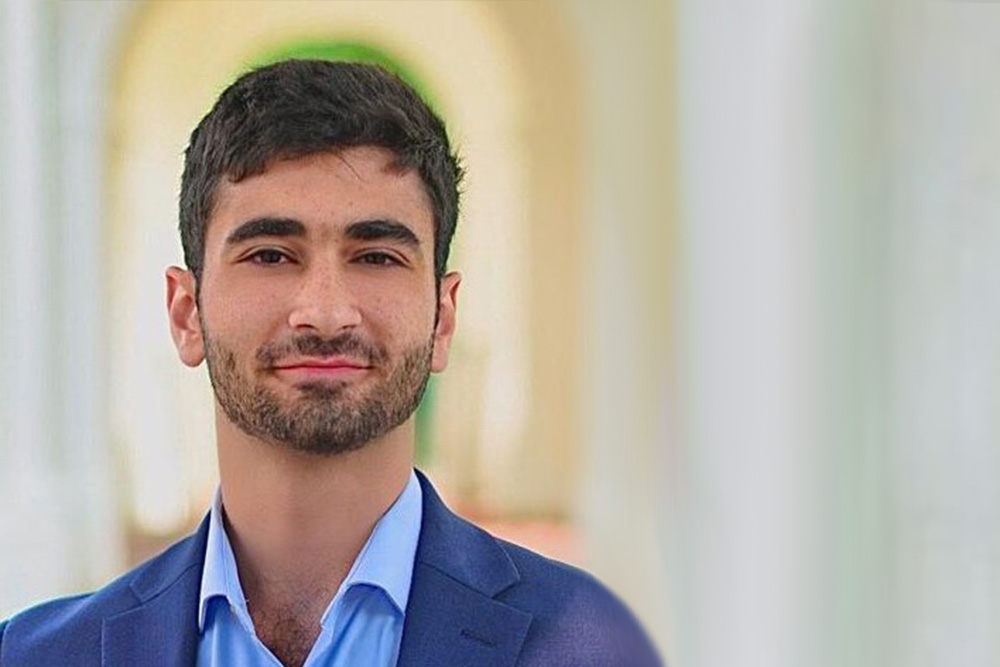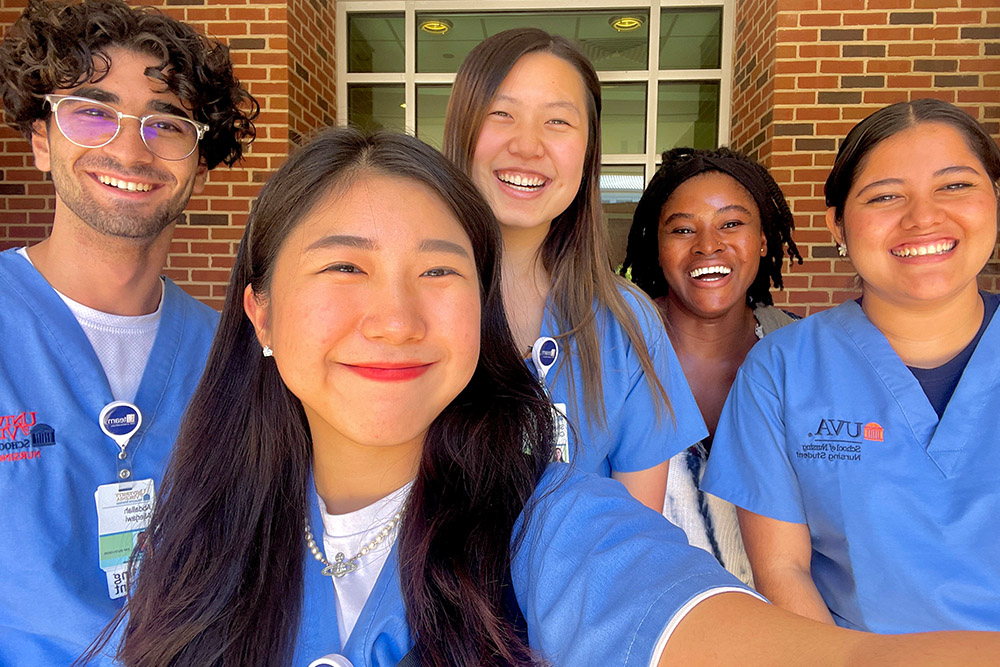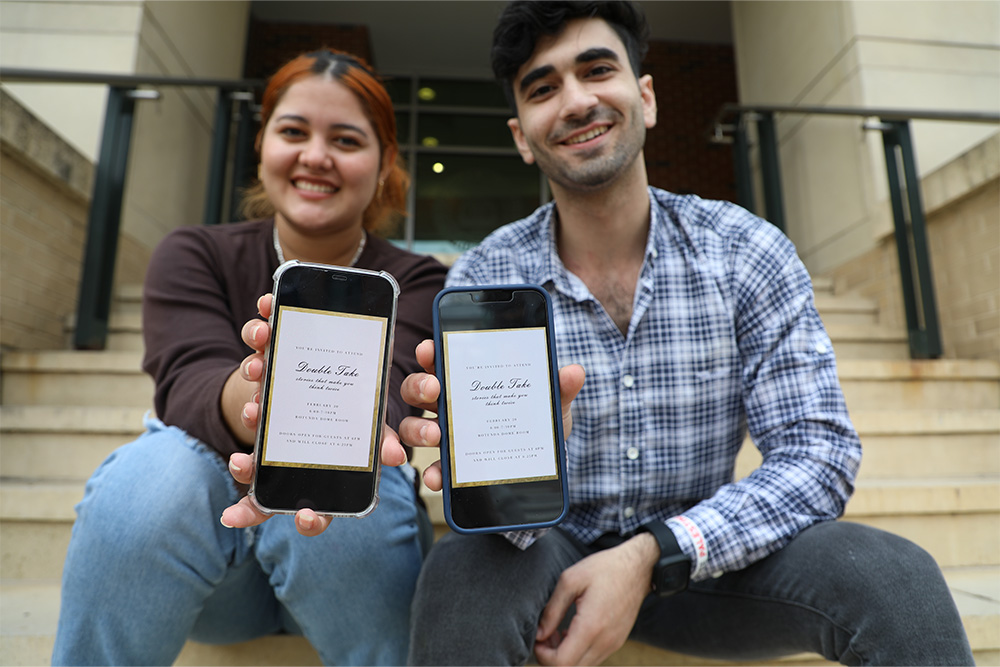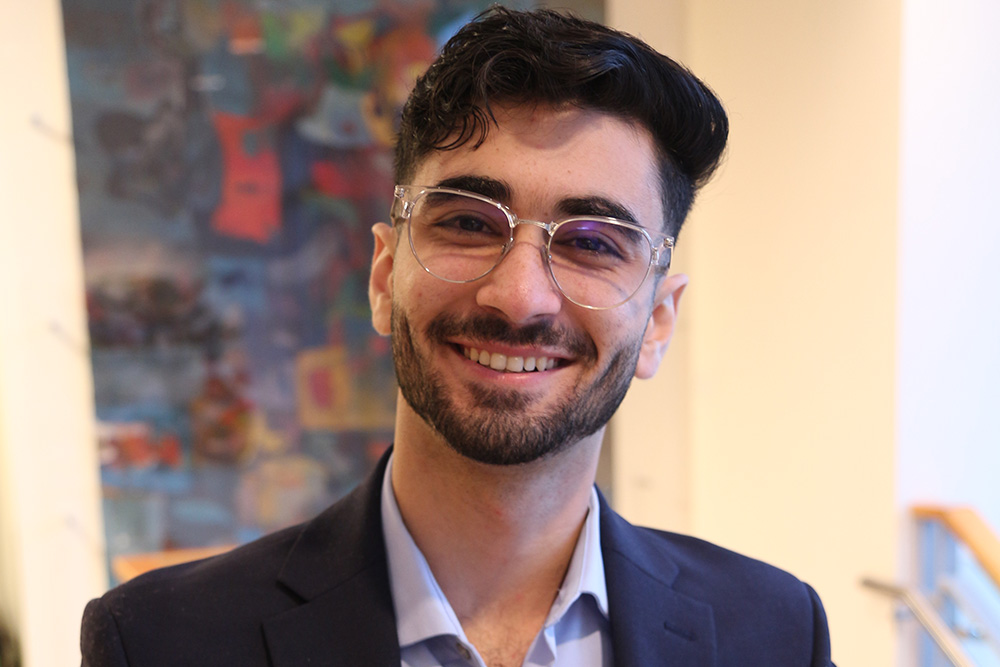remains conspicuously absent: the heartbeat of the students. Where is our voice? Where are our emotions? Where is our perspective?

RTD Essay: After ruling, students must demand equality - and justice
In a sea of articles brimming with cold, hard facts, soulless data and relentless analysis in the debate over affirmative action, one crucial element
"Just because I am a person of color does not mean that the admissions office glanced at my application and thought 'nonwhite' and admitted me. No, colleges do consider race, but it is just one of many factors that determine admission."
Abdallah Aljerjawi, BSN ’25
Frustration, confusion, and powerlessness consume my thoughts as I grapple with the fact that colleges have been stripped of their ability to consider race in college admissions decisions. Can you imagine the impact of this decision? It feels like we are living in a world where the doors of higher education are firmly closed to those who have faced the most difficult challenges in America.
Though I have been in the U.S. for only five short years since I immigrated, I can confidently assert that being a minority in this country presents a web of intricate and intertwined challenges: obstacles in every facet of life, including racism, economic hardships, language barriers and the ever-present fear of racial profiling during routine traffic stops — all of which compound. How can we turn a blind eye to race’s role when it is so rooted in these experiences? For instance, certain races have families with generational legacies of attending prestigious universities, while others live with the constant worry of losing their lives during routine encounters with law enforcement. It is clear that race cannot be disregarded when considering the hurdles that individuals from different backgrounds face, but somehow it has been.
"Affirmative action is a core aspect of holistic admissions as it takes into account the experiences shaping students. Yet, simultaneously, the Supreme Court contradicts it by failing to recognize that nothing could shape an individual more profoundly than their own race. This leaves us with a question: How can colleges truly have holistic admissions without affirmative action?"
Abdallah Aljerjawi, BSN ’25
Affirmative action lies at the heart of promoting equity in college admissions. While some argue that “equity” implies “equal outcomes,” in reality, equity means pursuing equal opportunity rather than identical results. Considering that not everyone starts on equal footing or faces the same circumstances in college applications acts as a bridge, offering students from diverse backgrounds—often those facing more obstacles—a fair shot at securing a seat at the table. Let’s be clear: Just because I am a person of color does not mean that the admissions office glanced at my application and thought “nonwhite” and admitted me. No, colleges do consider race, but it is just one of many factors that determine admission.
Moreover, colleges have increasingly embraced a test-optional and holistic approach, acknowledging that students are more than mere test scores and grades. Admissions officers have prioritized assessing fit and getting to know applicants on a deeper and more personal level. Somehow the Supreme Court didn’t see a problem with having a holistic approach that aims to understand applicants’ personal experiences; however, the court deems inclusion of race as unconstitutional.
Affirmative action is a core aspect of holistic admissions as it takes into account the experiences shaping students. Yet, simultaneously, the Supreme Court contradicts it by failing to recognize that nothing could shape an individual more profoundly than their own race. This leaves us with a question: How can colleges truly have holistic admissions without affirmative action?



It is heart-wrenching to acknowledge that higher education, the one domain in American society that doesn’t view minority status as a bad thing and prioritizes equity and representation, has now had that opportunity snatched away by the court. For decades, we have witnessed significant strides in empowering minorities to access higher education and break free from the chains of social and systemic inequalities.
Witnessing this progress being eroded is a devastating setback in our ongoing pursuit of equal rights and opportunities for all. Within education, we have the power to transform society by mending the gaps in economic and social status, and even culture. Removing affirmative action will risk perpetuating the cycle of inequality and depriving future generations of the opportunities we deserve.
If the Supreme Court had examined the consequences of the University of California abandoning affirmative action 25 years ago, it would have discovered what a profound impact this ruling will have. Black and Latinx enrollment at UC Berkeley and UCLA plummeted by 40% in the first year alone. Despite an investment of over half a billion dollars in race-neutral measures to increase diversity, the desired results have not been achieved. This reveals the importance of affirmative action in creating inclusive environments that foster cross-cultural understanding.
The doors of higher education should not remain firmly shut to those who have braved the most difficult challenges in America. We stand at a crossroads as public universities lose a powerful tool in making higher education accessible to all. It’s now up to students to unite, and demand that America live up to its ideal of equal opportunity—and justice.
Abdallah Maher Aljerjawi is a third-year student-leader in the School of Nursing and earned a full scholarship at the University of Virginia.
Originally published in the Richmond Times Dispatch July 11, 2023. Reprinted with permission from the author.

